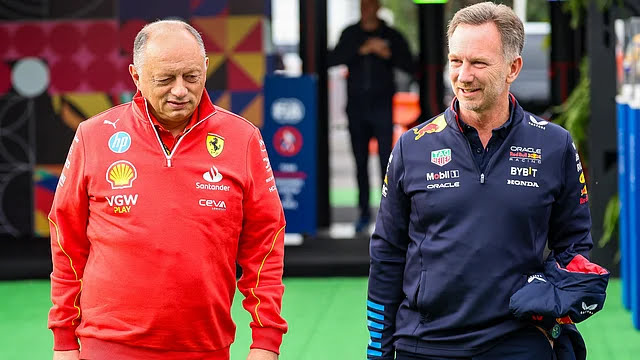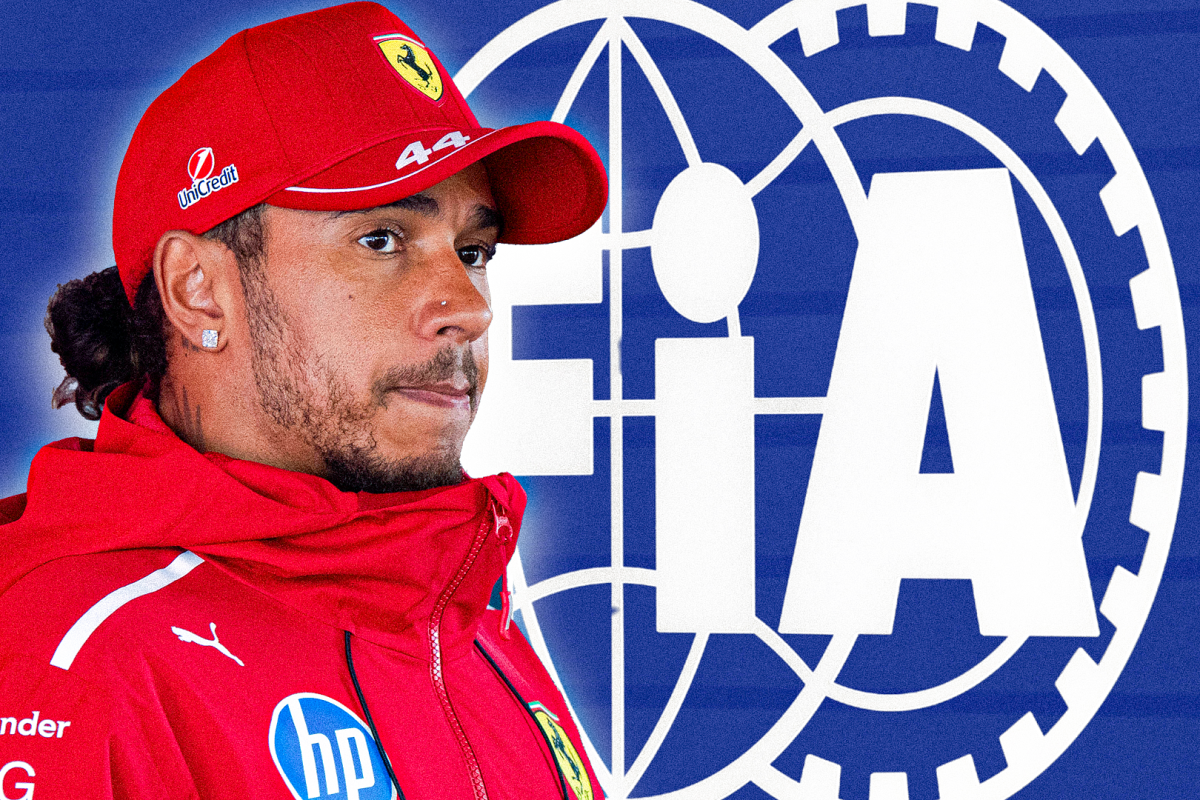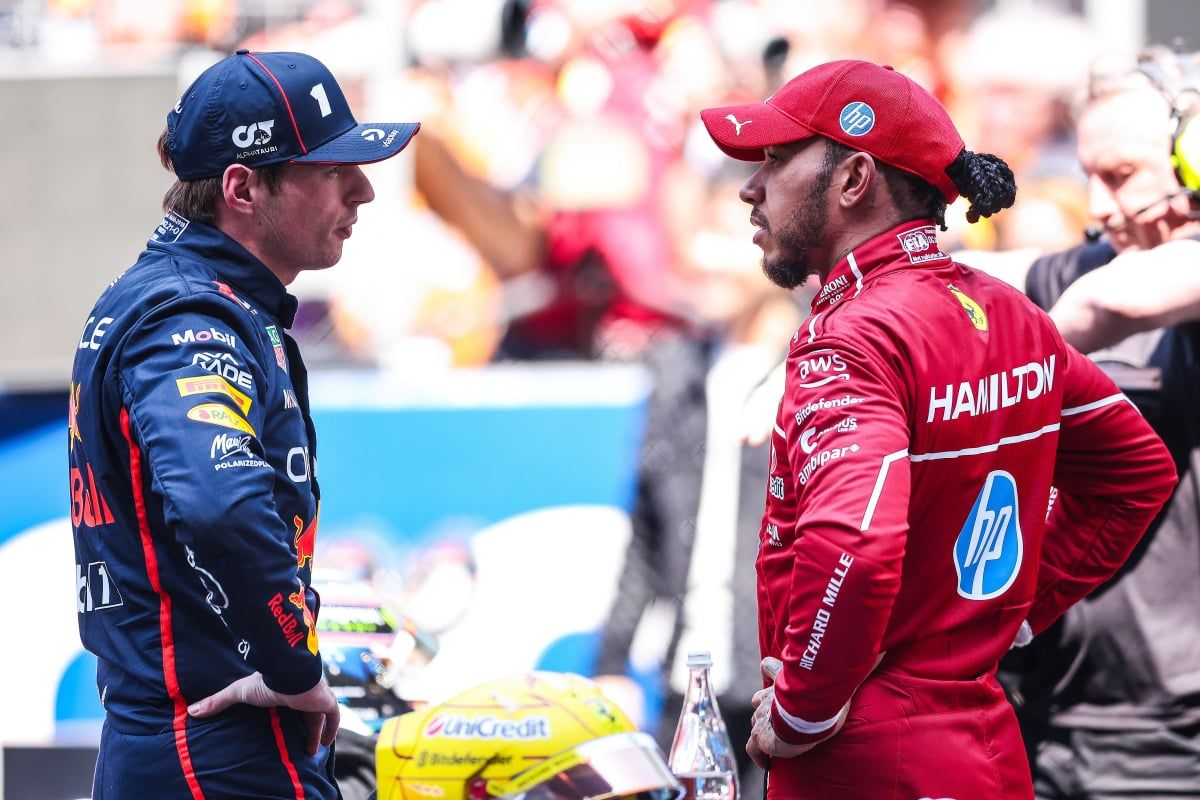Christian Horner: A Potential Lifeline for Struggling Ferrari? Former D… read more
The ongoing struggles of Scuderia Ferrari in the 2023 Formula 1 season have sparked intense speculation regarding the future of team principal Fred Vasseur. Adding fuel to the fire, former Formula 1 driver Vitantonio Liuzzi has boldly suggested that Red Bull Racing’s highly successful team principal, Christian Horner, could be the “perfect” replacement. Liuzzi’s comments, made in a recent interview, have ignited a debate within the F1 community, examining Horner’s potential strengths and weaknesses in the context of the Maranello-based team, and the broader implications of such a high-profile managerial shift.
Liuzzi, a seasoned racer with experience at several F1 teams, highlighted Horner’s proven track record of success as a key argument. Under Horner’s leadership, Red Bull Racing has dominated the sport in recent years, securing consecutive constructors’ and drivers’ championships. This unprecedented success is attributed to Horner’s ability to cultivate a winning culture, build strong relationships with drivers and staff, and effectively manage the complexities of a high-pressure environment. He’s known for his strategic acumen, his ability to foster a collaborative yet competitive atmosphere, and his adeptness at navigating the intricate political landscape of Formula 1. Liuzzi argues that these qualities, often lacking at Ferrari in recent years, are precisely what the struggling Italian team desperately needs to revitalize its performance.
Ferrari’s current struggles aren’t solely attributable to Vasseur, who only took over the helm earlier this year. The team has endured years of inconsistency, plagued by strategic errors, reliability issues, and internal conflicts. While Vasseur is attempting to implement structural changes and streamline operations, the results haven’t been as immediate as many hoped. The team’s performance on track has been disappointing, falling short of expectations and lagging significantly behind Red Bull’s dominance. This has led to increasing pressure on Vasseur, with some suggesting that a change of leadership is necessary to break the cycle of underperformance.
However, appointing Horner is not without its challenges. The sheer magnitude of such a move is considerable. Horner is deeply entrenched at Red Bull, having played a pivotal role in building the team’s current success. Luring him away would require an incredibly lucrative and enticing offer, potentially involving a significant financial commitment and significant changes to Ferrari’s organisational structure. Furthermore, Horner’s style, known for its assertiveness and directness, might clash with the more traditionally hierarchical culture at Ferrari. Adapting to a different team environment with its unique complexities and political dynamics would require significant adjustment and could potentially hinder his effectiveness.
Beyond the logistical hurdles, there’s also the question of whether Horner’s success is entirely transferable. Red Bull’s dominance is built on a foundation of exceptional technical prowess, fostered by a highly skilled engineering team and Adrian Newey’s genius in car design. Ferrari, despite possessing significant resources and expertise, hasn’t consistently matched that level of technical excellence. While Horner’s leadership undoubtedly plays a vital role, it’s crucial to acknowledge the contributions of other key individuals within the Red Bull ecosystem. Replicating that success at Ferrari would necessitate a holistic approach, addressing not only leadership but also the underlying technical and strategic shortcomings.
Another crucial consideration is the potential disruption such a move would cause. A sudden change in team leadership during the season could further destabilize Ferrari, potentially hindering the team’s progress even more. While a fresh perspective could be beneficial, a mid-season change carries inherent risks of further setbacks. The disruption to team morale, the readjustment period required for the new leader to integrate and understand the complexities of the team, and the potential for further internal conflicts are all factors that need to be carefully weighed.
In conclusion, Liuzzi’s suggestion presents a fascinating, albeit complex, scenario. While Horner’s success at Red Bull is undeniable, translating that success to Ferrari is far from guaranteed. The potential benefits – a proven leader with a track record of success, the injection of a new, potentially more effective management style, and the chance to break the cycle of underperformance – are considerable. However, the significant challenges – the difficulties in recruiting Horner, the potential cultural clashes, and the inherent risks associated with a mid-season leadership change – cannot be ignored. The decision, should Ferrari even consider it, would require a meticulous assessment of the potential rewards and risks, ensuring it aligns with the long-term strategic goals of the team. The future of Ferrari remains uncertain, and the possibility of Horner at the helm is a dramatic storyline yet to unfold.




